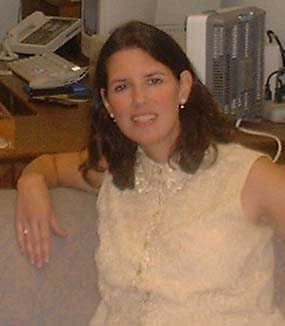Nancy Birnbaum, a 1995 environmental graduate of the George Washington University, is a senior official in one the most innovative programs at the U.S. Environmental Protection Agency. That program, called Project XL, is a personal initiative of President Clinton and Administrator Browner. It is an experimental program designed to test new ways of achieving environmental protection that extends beyond the traditional regulatory processes without the cost and time burdens of permitting programs. It is based on the idea that organizations in the regulated community can try new approaches in the place of regulations and permits if they can demonstrate better environmental results than would be expected under the current regulatory regime.
In her position in the Project XL program, Nancy oversees a large number of projects, from inventive methods of reducing effluent discharges from manufacturing plants, to streamlining monitoring and recordkeeping processes at military installations, to self-certification systems run by state-level environmental protection agencies. As an example of her success to date, a Weyerhaeuser Company pulp manufacturing facility in Georgia achieved a 32% reduction in bleach effluent discharges to the Flint River, a 40% reduction in solid waste generation, and a 13% decrease in air emissions in just one year under the program, while saving $160,000 in operating costs. In another example, the Intel Corporation has targeted itself a goal of a 60% reduction in solid waste generated and a goal to recycle 65% of the fresh water it uses.
.
Nancy began her education at Lehigh University in Bethlehem, Pennsylvania, where she received her B.S. degree in Computer Science in 1986. She completed her J.D. at the Yale University School of Law in 1989, and attended GW starting in 1992, graduating with a master’s degree in Environmental and Natural Resource Policy in 1995.
She landed her job with the USEPA soon after graduating from GW. Prior to that, she worked as the Assistant Counsel to the Inspector General of National Science Foundation from 1992 to 1995. At the NSF, she worked on the U.S. Antarctic Program in the areas of environmental compliance and logistical operations.
Nancy’s other professional experience includes a stint as an Attorney with the U.S. Securities and Exchange Commission in Washington, D.C. (1989-1990) , where she evaluated whether sulfur dioxide allowances created by the Clean Air Act Amendments are securities. She also served as a Law Clerk with the Federal Court of Appeals, Eleventh Circuit, in Macon, Georgia, and as a consultant and seminar tutor at the Yale Law School in New Haven, Connecticut. During her college days, Nancy served as a member of the volunteer staff at the Great Smoky Mountains National Park in Gatlinburg, Tennessee.
Nancy holds many awards in her career to date, including a Multi-Media Team Award from EPA Region 5, Bronze Medals from EPA Office of Reinvention and EPA Regions 3 and 4, and an NSF Special Act Award. At law school, she served as the Editor of the Yale Journal of International Law and as the Managing Editor of the Yale Journal on Regulation.
Since her days of coursework in the Environmental and Energy Management Program at GW, Nancy has maintained her ties with us. While she already represents another one of our GW environmental graduate success stories, there is no doubt that we will be hearing a lot more about Nancy in the years to come.


